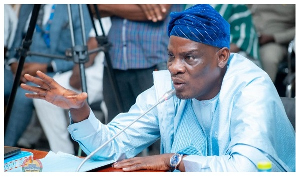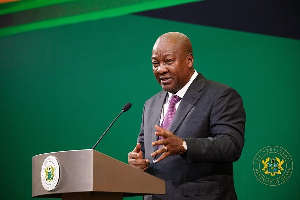The Tyranny of Experts: Economists, Dictators, and the Forgotten Rights of the Poor, by William Easterly, Basic Books, RRP£19.99/RRP$29.99, 416 pages
The Idealist: Jeffrey Sachs and the Quest to End Poverty, by Nina Munk, Doubleday, RRP$26.95, 272 pages
Gold Coast gained independence in 1957, it had developed a lucrative niche as one of the world’s largest producers of cocoa. Yet the agricultural prowess of the African country now known as Ghana had little to do with its former imperial masters.
During the colonial period, the British tried to introduce coffee and cotton, which administrators considered would be ideal for local conditions. Both crops failed. Similarly, attempts to improve the productivity of locally grown cocoa on large-scale plantations had the effect of almost killing off its cultivation.
What the British couldn’t acknowledge was that the Akwapim people in south-eastern Ghana had already hit upon the right formula. Experiments with cocoa began in the late 19th century after Tetteh Quarshie, a local farmer and trader, returned from a trip to an island off the coast of Cameroon inspired by the agricultural techniques he had observed. The Akwapim used smallholdings that intermixed the crop with food, thereby providing ground cover and weed control. The yields they achieved quickly turned cocoa into an important export.
The Akwapim and the neighbouring Ashanti succeeded in spite of misguided efforts at improvement by outsiders. Yet, as William Easterly describes in The Tyranny of Experts, Kwame Nkrumah, the first president of independent Ghana, was still drawn to the misplaced confidence of foreign consultants. He hired Arthur Lewis, a St Lucia-born, London-trained economist who embodied what Easterly dubs the “technocratic approach to development”, and who recommended imposing higher taxes on the cocoa industry to fund public investment. That helped trigger the start of a decline in production that lasted until economic reforms in 1983.
The story encapsulates Easterly’s thesis: that “authoritarian development”, which considers poverty the result of a shortage of expertise, has failed consistently over the past 50 years. The author, a professor of economics at New York University and prominent scourge of the aid industry, sees the debate embodied in the joint winners of the 1974 Nobel Prize in economics, Friedrich Hayek and Gunnar Myrdal. For Easterly, Hayek is first and foremost a champion of individual rights; Myrdal, an advocate of state planning whose book Asian Drama influenced a generation of development scholars, is a cautionary example of the “blank slate” approach.
The Tyranny of Experts advances the case that freedom must be at the heart of the fight against poverty. In doing so, it makes some important and thought-provoking points. Easterly dismisses any causal link between economic growth and “enlightened” authoritarian regimes, such as that of Lee Kuan Yew in Singapore or the Chinese Communist party since Mao. He also questions the short-term and unreliable nature of data measuring apparent progress in tackling poverty – chiding Bill Gates and Tony Blair, for instance, for their recent praise of apparent reductions of infant mortality in Ethiopia. Easterly argues both that the improvements are open to question, and that the price paid was the endorsement of Ethiopia’s now deceased leader Meles Zenawi, a “benevolent autocrat” accused of jailing opponents and using aid to manipulate support.
In an overview of global economic development over several centuries, Easterly highlights the importance of liberating and incentivising individuals to innovate, rather than parachuting in planners with catch-all solutions that take no account of local conditions. He rightly rolls his eyes at some UN declarations and institutions.
This resonates with journalist Nina Munk’s The Idealist, a highly readable examination of Jeffrey Sachs’s Millennium Villages Project in Africa, long a very public target for Easterly. Curiously, The Tyranny of Experts is silent on Easterly’s sparring partner but Munk takes up the slack. She describes the mixed record of Sachs, a man who has combined powerful intellect with extraordinary charisma to persuade governments and philanthropists to “end poverty” through a substantial increase in funding for showcase villages adopting evidence-based policies.
“One day, viewed from space, the African continent would be one vast millennium village,” she writes of Sachs’s vision. Instead, after two decades, many rock concerts, countless whistle-stop tours for dignitaries in air-conditioned jeeps and more than $120m in pledges, the impact of his efforts remains questionable. Debate rages over the wisdom and effectiveness of the shifting policies he has proposed, let alone their sustainability once the money runs out.
Munk recounts how unanticipated external factors and unintended consequences keep getting in the way. Accountability is in short supply. “It’s just one long monologue from New York,” one Nairobi manager grumbles to her. The lack of comparators makes it impossible to disentangle positive effects in the villages from broader recent progress across much of Africa.
It is possible to appreciate the force of such critiques while still granting that Sachs, Gates and others have stimulated much-needed debate and funding for development in recent years. Easterly suggests that it is economic growth that has generally led to an improved quality of life over the centuries, not top-down efforts at amelioration. Yet he could have explored in more detail whether today’s health technologies, even if parachuted in by donors, also have the power to invert the chain of causation and lift people out of poverty. Projects to develop and disseminate life-saving vaccines, anti-malarial bed nets, drugs and diagnostics have undoubtedly extended millions of people’s lives.
He does a good job of undermining the association between authoritarianism and growth but does not prove the contrary case that sustained growth requires more democratic governance. Reconciling competing sets of individual rights is also a more complex business than Easterly allows. If a planned road today in rural Uganda benefits one village because of improved access but destroys the agricultural land of another, how to judge the project?
Sachs’s ambitious technocratic interventions may have shown insufficient sensitivity to local realities. But Easterly poses more questions than he answers in his calls for experts and donors to stand back and let individuals flourish.
Andrew Jack is the FT’s deputy analysis editor
Opinions of Wednesday, 12 March 2014
Columnist: Andrew Jack


















